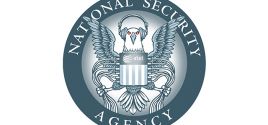Yes, I Can Break The Law: I’m a Police Officerby William GriggFeb. 13, 2010 |
Popular 
John Hagee Cheers Israel-Iran Battle as 'Gog and Magog War,' Will Lobby Congress Not to Deescalate

Patriot ACT on Steroids: FISA Bill Forces 'An Enormous Range' of Businesses to Act as NSA Spies

Right-Wing Media See Traffic Plummet in Wake of Algorithm Changes by Facebook, Google

Israel to Extend Water Agreement With Jordan 'For Helping Shoot Down Iranian Drones'

Congress Introduces ADL-Backed 'Countering Antisemitism Act' to Police Online Speech
 The totalitarian conceit that people wearing state-issued costumes are exempt from the laws that govern mere Mundanes was expressed with commendable candor by Sgt. Graig Harding of the St. George (Utah) Police Department. “Officers break laws to keep law and order,” announced the headline of Harding’s February 3 “On the Beat” column. Harding explained that because “[t]hose who serve in law enforcement occupy a special niche in society,” they sometimes “have to break the very laws they are sworn to uphold.” This means, for instance, “officers buy drugs to arrest sellers (which would be an illegal act for a citizen).” Note carefully how Harding distinguishes between “citizens” — those subject to laws — and “officers” — those invested with the privilege of violating laws as they deem necessary. “On assault calls, officers often have to commit assaults, themselves, to make the offenders stop and take them into custody,” Harding continues. Were he sufficiently honest, Harding would have admitted that a mere “citizen” who so much as touches a member of the consecrated coercive caste will be charged with “assaulting a police officer,” yet uniformed tax-feeders can often beat, electrocute, and even murder “citizens” with impunity. Hardin might also have mentioned that police in economically distressed cities are increasingly becoming armed robbers, stealing money and property at gunpoint in the name of “asset forfeiture.” Perhaps he could have soothingly instructed his readers that it is a privilege for mere citizens to be plundered for the benefit of the Exalted Corps of Public Guardians. “We have taken upon ourselves a sacred trust to protect and to serve you, the public,” writes Harding in words that ooze condescension. “Any officer who violates this trust will not last in this profession.” Quite the contrary is true: The unionized Brotherhood in Blue, in collusion with the other elements of the state’s punitive priesthood, will do whatever it can to insulate officers from accountability for violating the public’s misplaced trust in them. It is when an officer violates the “trust” of the tax-consuming class that he is most likely to get in trouble. Harding concludes his totalitarian homily with admonishing mere citizens to know their proper place, which is on their knees tugging their forelocks in abject gratitude to their sacred protector-overlords in blue: “Instead of judging [the heroic agents of government violence] and jumping to conclusions, we owe it to them and to our children to give voice to a positive opinion: `They must be watching for someone, be after somebody, or be en route to a call.’” “The bottom line is summed up by a saying from Winston Churchill: `We sleep soundly in our beds because rough men (and women) stand ready to visit violence on those who would do us harm,’” insists Harding, who mis-attributes that familiar authoritarian apothegm (it was supposedly coined by George Orwell, rather than the execrable Churchill). The chastened servility demanded by Harding brings to mind a recent edict issued by a government-run school in Huangping, China: All students were instructed to “salute every passing car on you way to and from school,” supposedly as a safety measure but actually as a way of paying homage to local commissars. To their considerable credit, this policy provoked not only widespread disobedience but a barrage of ridicule from the local public. It’s a pity that most residents of Lee Greenwood’s Amerika aren’t as contemptuous of “authority” as the typical residents of “Red” China. |



